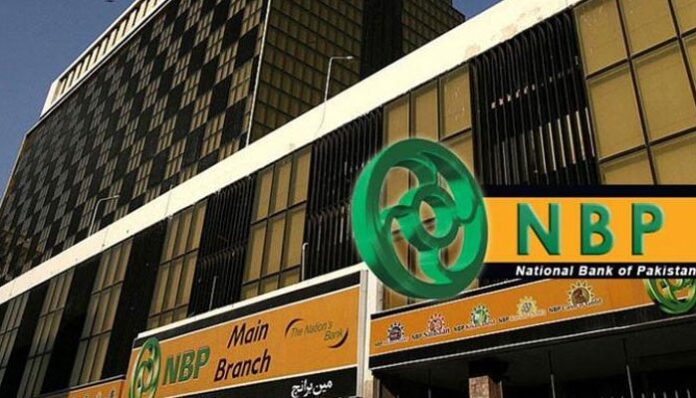Finance Minister Miftah Ismail says he has instructed the National Bank of Pakistan (NBP) to withdraw its appeal against the Federal Shariat Court’s recent verdict on Riba (interest) filed at the Supreme Court (SC) of Pakistan, a video by journalist Ansar Abbasi claims.
“I have instructed the NBP to take its petition back,” says Ismail.
In a tweet, following the announcement of the Shariah Court decision, Ismail tweeted, “We welcome the Federal Shariat Court (FSC) decision in the Riba case. The government and SBP will carefully study this important decision and then seek guidance and clarification from the FSC about the process, steps and timeframe to implement this decision.”
No decision has been made about the SBP withdrawing its plea challenging the Federal Shariah Court (FSC) decision against Riba in the SC.
Miftah stated that he will discuss the issue with the SBP.
The Jaamat-i-Ismali is running a campaign to boycott banks that have challenged the shariah court’s decision. Similarly, the Council of Islamic Ideology issued a press release on Tuesday stating that the council wrote to PM Shehbaz Sharif urging him to intervene and get the SBP to withdraw its appeal in the SC.
Sources inform Profit that three banks from the private sector have also filed appeals with the apex court, they include UBL, Allied Bank and MCB Bank.
Why have the banks including the central bank filed an appeal?
On April 28, the Federal Shariat Court, announced a verdict in a long-pending, declaring the prevailing interest-based banking system as against the Shariah and directed the government to facilitate all loans under an interest-free system.
“Islamic banking system is risk-free and against exploitation,” Justice Dr Syed Muhammad Anwar remarked.
“Almost two decades have elapsed but the governments have not taken any decisions against the interest system,” Justice Anwar said.
The court also declared all the provisions of the Interest Act 1839, which facilitate interest, as unlawful.
The full FSC bench comprised of Chief Justice Muhammad Noor Meskanzai, Justice Dr Syed Muhammad Anwar, and Justice Khadim Hussain M Shaikh
The judgment read, the prohibition of Riba is the “cornerstone of the Islamic economic system”
The ruling added that “elimination of Riba from our economic system is our religious as well as our constitutional duty; hence it has to be eliminated from Pakistan”.
On Saturday June 26, the SBP filed an appeal under Article 203D of the Constitution against certain discrepancies in the FSC judgment. The SBP, through the appeal, sought clarifications.
The SBP explained that it had already begun the transformation of the banking system into a Shariah compliant one at the start of the millennium and that Islamic and Conventional banking were both allowed to operate simultaneously.
“This approach has proved to be a success. The Islamic banks now account for 19.4% of the country’s overall banking system in terms of assets while in terms of deposits the share is 20% (as of March 31, 2022). Currently, 22 Islamic banking institutions (lBls) (five full- fledged Islamic banks and 17 conventional banks having standalone Islamic banking branches) with a branch network of 3,983 branches along with 1,418 Islamic banking windows (Islamic banking counters at conventional branches) are operational across the country,” the appeal read.
Moreover, in the appeal, the SBP further explained that while Islamic modes of finance were a growing area of interest for foreign providers, the central bank could not enforce adoption.
The SBP further argued that Rule 9 of the Banking Companies Rules, 1963 provided for the receipt of interest paid by foreign issuers of approved securities that are held in Pakistan.
Moreover, the SBP claimed that the mass scale conversion of the existing banking system would require infrastructural investment.
“Accordingly, transaction costs, documentation requirements and dearth of risk management solutions will put additional pressure on the conversion process. Abruptness in implementation will create uncertainty in the banking sector, which may bring instability to the whole economy. However, the GoP, SBP and other stakeholders are working towards achieving an interest free economy that adheres to the principles of the Shariah in the country.”

























Islamic finance is a documentary hassle for borrowers and lenders alike. It basically facilitates the same transaction through call option/ musharaka agreements. Malaysia experimented with Islamic finance and soon reverted back. We should take the benefit of this hindsight view, rather than submitting to the blackmail of Militantly Islamist parties.
Outclass Article!
The principal feature of Bahria EMC Lahore for financial backers is that it is the piece of Bahria Town which is all-inclusive and well known for the luxurious housing society development across Pakistan. Bahria EMC Lahore is a place that is known for vogue and style very much like some other Bahria projects.
We can get benefited only after complete implementation of interest free economy as per teachings of Islamic. The mixture of Islamic and conventional economy can be proved as disaster. So we need to follow the Islam completely. Be aware of liberals (candle mafia) who are making foolish comparison of their western learned chapters with Islam (The complete and perfect code of life)